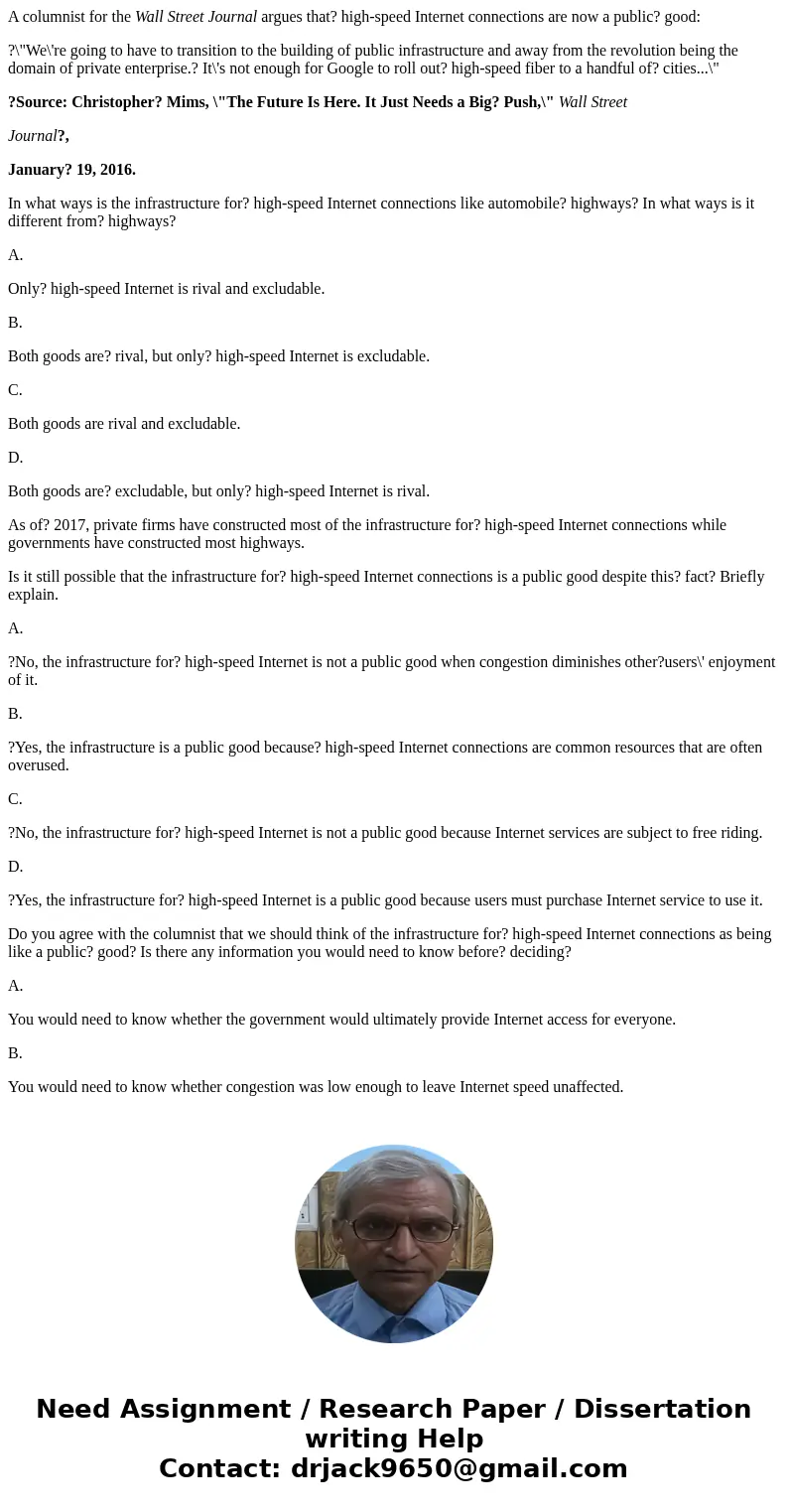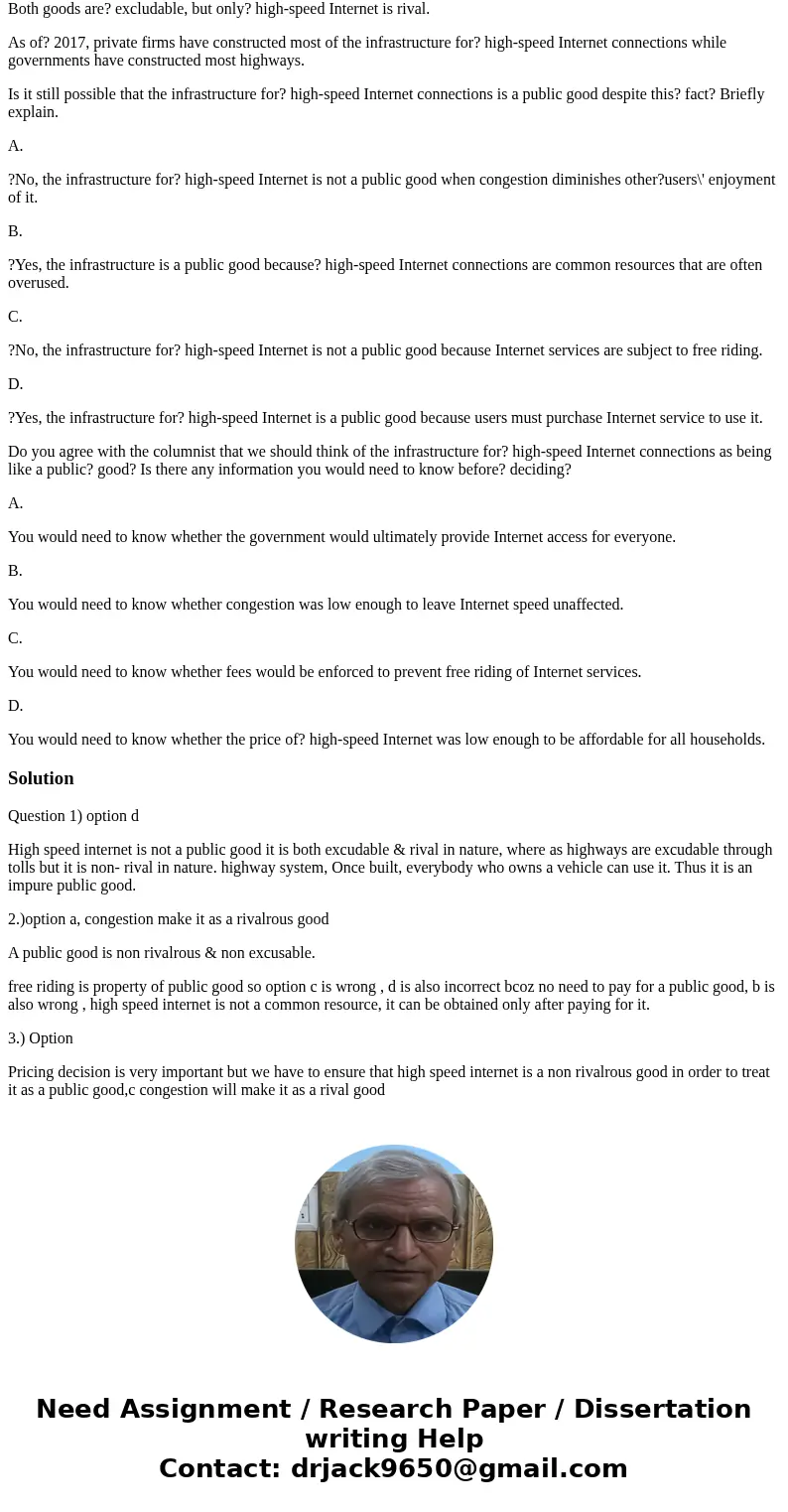A columnist for the Wall Street Journal argues that highspee
A columnist for the Wall Street Journal argues that? high-speed Internet connections are now a public? good:
?\"We\'re going to have to transition to the building of public infrastructure and away from the revolution being the domain of private enterprise.? It\'s not enough for Google to roll out? high-speed fiber to a handful of? cities...\"
?Source: Christopher? Mims, \"The Future Is Here. It Just Needs a Big? Push,\" Wall Street
Journal?,
January? 19, 2016.
In what ways is the infrastructure for? high-speed Internet connections like automobile? highways? In what ways is it different from? highways?
A.
Only? high-speed Internet is rival and excludable.
B.
Both goods are? rival, but only? high-speed Internet is excludable.
C.
Both goods are rival and excludable.
D.
Both goods are? excludable, but only? high-speed Internet is rival.
As of? 2017, private firms have constructed most of the infrastructure for? high-speed Internet connections while governments have constructed most highways.
Is it still possible that the infrastructure for? high-speed Internet connections is a public good despite this? fact? Briefly explain.
A.
?No, the infrastructure for? high-speed Internet is not a public good when congestion diminishes other?users\' enjoyment of it.
B.
?Yes, the infrastructure is a public good because? high-speed Internet connections are common resources that are often overused.
C.
?No, the infrastructure for? high-speed Internet is not a public good because Internet services are subject to free riding.
D.
?Yes, the infrastructure for? high-speed Internet is a public good because users must purchase Internet service to use it.
Do you agree with the columnist that we should think of the infrastructure for? high-speed Internet connections as being like a public? good? Is there any information you would need to know before? deciding?
A.
You would need to know whether the government would ultimately provide Internet access for everyone.
B.
You would need to know whether congestion was low enough to leave Internet speed unaffected.
C.
You would need to know whether fees would be enforced to prevent free riding of Internet services.
D.
You would need to know whether the price of? high-speed Internet was low enough to be affordable for all households.
Solution
Question 1) option d
High speed internet is not a public good it is both excudable & rival in nature, where as highways are excudable through tolls but it is non- rival in nature. highway system, Once built, everybody who owns a vehicle can use it. Thus it is an impure public good.
2.)option a, congestion make it as a rivalrous good
A public good is non rivalrous & non excusable.
free riding is property of public good so option c is wrong , d is also incorrect bcoz no need to pay for a public good, b is also wrong , high speed internet is not a common resource, it can be obtained only after paying for it.
3.) Option
Pricing decision is very important but we have to ensure that high speed internet is a non rivalrous good in order to treat it as a public good,c congestion will make it as a rival good


 Homework Sourse
Homework Sourse